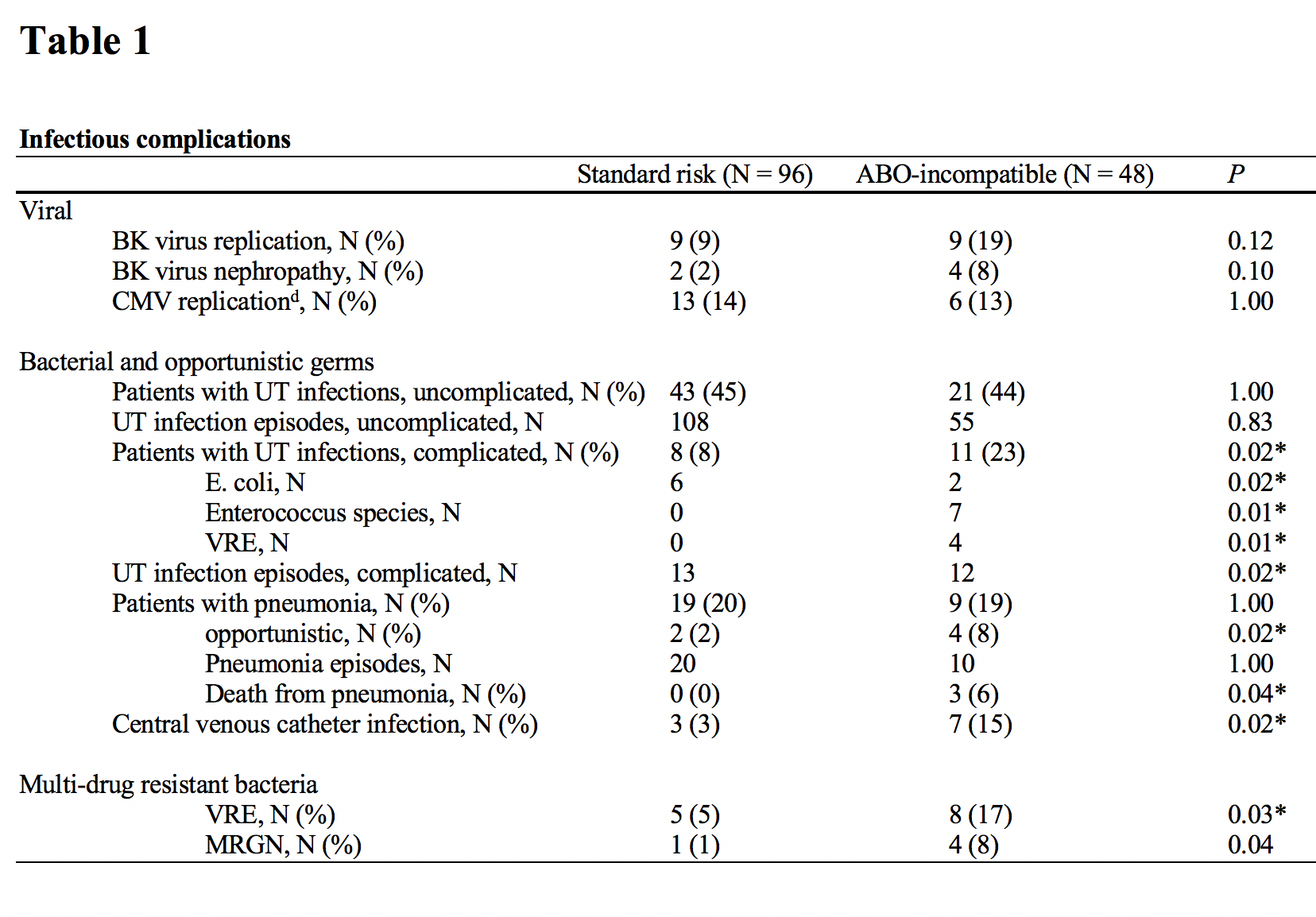Eight-Year Outcomes Following ABO-Incompatible Kidney Transplantation Performed after Desensitization by Antigen-Unspecific Immunoadsorption Devices
1Nephrology, University of Heidelberg, Heidelberg, Germany, 2Immunology, University of Heidelberg, Heidelberg, Germany
Meeting: 2019 American Transplant Congress
Abstract number: 31
Keywords: Immunoadsorption, Infection, Kidney transplantation
Session Information
Session Name: Concurrent Session: Kidney Immunosuppression: Desensitization
Session Type: Concurrent Session
Date: Sunday, June 2, 2019
Session Time: 2:30pm-4:00pm
 Presentation Time: 3:30pm-3:42pm
Presentation Time: 3:30pm-3:42pm
Location: Ballroom A
*Purpose: Owing to the unmet need of available kidney grafts, ABO-incompatible kidney transplantation (KTX) has been established to enlarge the possible donor pool. The current desensitization protocol consists of nonantigen-specific IA for anti-A/B antibody depletion in combination with the administration of Rituximab. Outcomes after ABO-incompatible KTX seem to be similar to ABO-compatible KTX. Nethertheless, there is some evidence for an increased incidence of severe infectious complications
*Methods: In this study, we retrospectively analysed long-term outcomes with an emphasis on infectious complications of 48 ABO-incompatible living-donor kidney recipients compared with a 1:2 matched ABO-compatible cohort. The ABO-compatible cohort is composed of 96 recipients who were transplanted in Heidelberg at the same time period and were selected based on similar baseline demographic and clinical characteristics.
*Results: ABO-incompatible recipients showed comparable long-term results in respect of graft function and patient survival as ABO-compatible recipients over a follow-up period of up to 8 years. T-cell-mediated and antibody-mediated rejections were comparable in both groups. Although we did not record a general increase in frequency of infections, complicated infections such as urosepsis (21.2% vs. 8.5%; p=0.02) and opportunistic pneumonia (8.3% vs. 2.0% p=0.02) appeared more frequently in ABO-incompatible compared to ABO-compatible kidney transplant recipients. Death from infections was significantly increased in ABO-incompatible kidney transplantation (6.3% vs. 0% p=0.01). In high-titer kidney recipients (hemagglutinin titer of ≥ 1:256) the incidence of BK virus replication was elevated (44% vs. 13%; p=0.04) and postoperative bleeding complications occurred more frequently (44% vs. 8%; p=0.02) compared to low-titer patients.
*Conclusions: Althought long-term graft function in ABO-incompatible KTX is comparable with a matched ABO-compatible cohort, severe infectious complications with lethal outcome are significantly increased. Moreover, particular attention has to be paid on BK virus nephropathy in high-titer recipients.
To cite this abstract in AMA style:
Speer C, Kälble F, Silva LPegoda, Nusshag C, Schaier M, Süsal C, Sommerer C, Zeier M, Morath C. Eight-Year Outcomes Following ABO-Incompatible Kidney Transplantation Performed after Desensitization by Antigen-Unspecific Immunoadsorption Devices [abstract]. Am J Transplant. 2019; 19 (suppl 3). https://atcmeetingabstracts.com/abstract/eight-year-outcomes-following-abo-incompatible-kidney-transplantation-performed-after-desensitization-by-antigen-unspecific-immunoadsorption-devices/. Accessed February 18, 2026.« Back to 2019 American Transplant Congress


